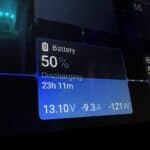
MENUMENU
TALK TO AN EXPERT
Special Hours: 7AM – 6PM PST
TALK TO AN EXPERT
Special Hours: 7AM – 6PM PST
If you have a multi-battery system, you might be wondering how they should be connected together. After all, a benefit of having two or more batteries is the backup power. But how do you prevent one battery from accidentally draining your others? A battery isolator is the answer you’re seeking.
Battery isolators allow you to control the current flow in your off-grid electrical system. Some allow you to shut off any power drain with the flip of a switch. Some prevent your batteries from draining off each other. Regardless, a battery isolator will almost always improve a multi-battery system. Keep reading to learn more.
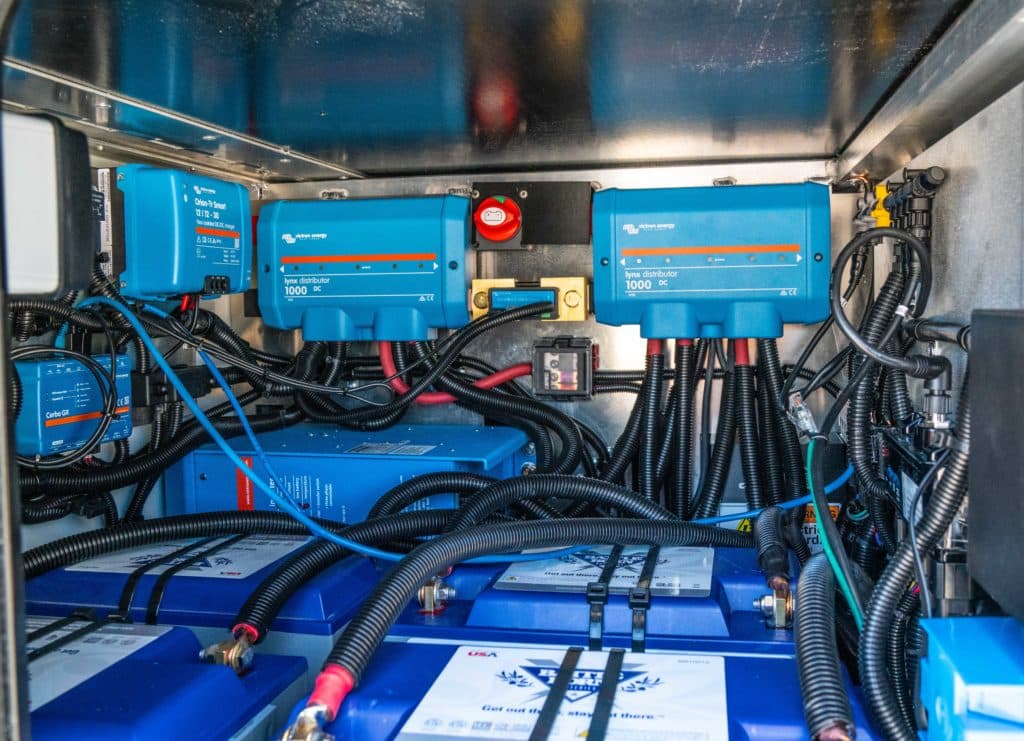
A battery isolator is a device that typically runs between a starter battery and a secondary battery. It can disconnect a battery from a power system either for charging or discharging purposes.
Most often, however, these devices protect a secondary or backup battery from any unnecessary drain.
For example, when the engine is running, and the alternator is charging the starter battery, it’s also charging the secondary battery. But when you turn the engine off, you don’t want the batteries to stay connected. If the house batteried die then so will the starting battery. In the case of different battery chemistries, (like lead acid starting and lithium house batteries) you also do not want to connect them together.
This is where the isolator comes in. When the engine is off, the isolator quite literally isolates the second battery, allowing it to keep its charge.
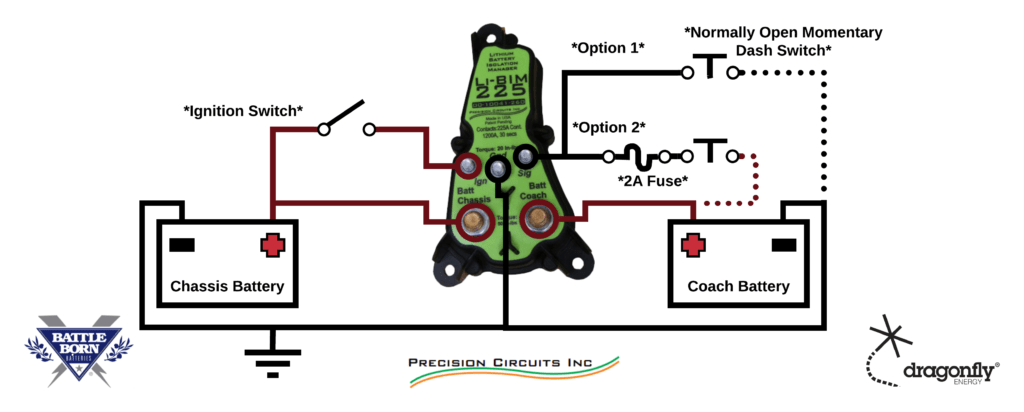
To put it simply, these devices give users more control over their power systems. They’re needed in muti-battery systems where the batteries need to discharge or charge at different times.
Depending on your system’s specific needs, you can use them to prevent both unintended and uneven battery discharge. Many also use battery isolators to disconnect a battery that they are using as a backup.
Battery isolators are used in any situation that involves multiple battery banks in the same electrical system.
For example, you can use them in vans, RVs, or boats to isolate the house batteries from the alternator and starter battery when the engine isn’t running. You can also use them to isolate two lead-acid batteries from one another to prevent one from drawing down the other.
➡ Dig into how to isolate your lead-acid and lithium batteries.
Another common use for these devices is separating one battery from an entire electrical system when the charge gets too low. This can also help keep a fully charged battery handy as a backup.
Thus, you can find battery isolators in nearly any off-grid electrical system. Whether it’s an RV, van, skoolie, boat, or off-grid cabin, these devices can be extremely useful. They help ensure you always have a power source, even if you accidentally drain your primary batteries.
The type of battery isolator you need depends on your electrical system and the reason why you need one. Here are a few of the most common types.
For example, do you need to isolate a secondary battery purely for backup electricity? If so, you could probably get by with a manual battery isolator. This is one of the simplest options. It most often consists of a switch you engage when you need to connect or disconnect the backup battery.
These sometimes are rotary switches that select, one or more batteries or just a set of switches that can turn batteries on or off. While these are very simple, they will not prevent you from accidentally leaving a battery on and draining it.
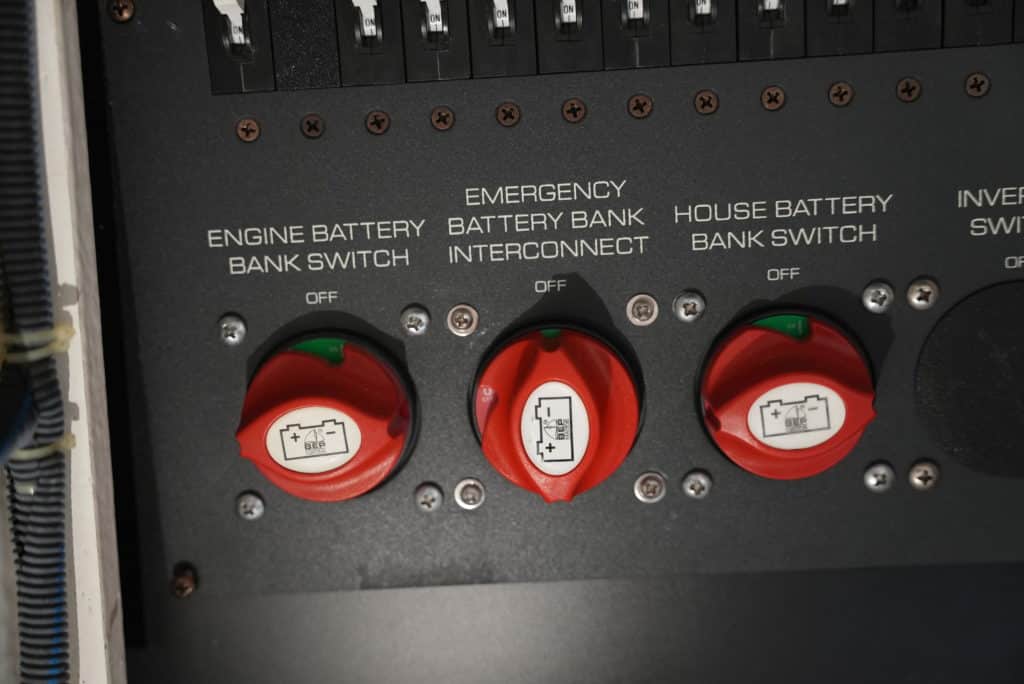
In contrast, if you need to isolate your secondary battery from the alternator or starting battery in order to protect the starting battery, you’d be better off with a relay-type battery isolator with external control.
This is helpful in automotive systems when the “house” or secondary battery exceeds the current capability of the alternator. When this happens, your secondary battery will get the additional current it needs from your starter battery, resulting in a massive power drain from both of your batteries. A relay battery isolator with external control can help protect against this.
Likewise, a relay-type battery isolator with an internal voltage cutout will do essentially the same thing but the opposite. These devices go into automotive systems to prevent the secondary battery from draining if the starter battery gets low.
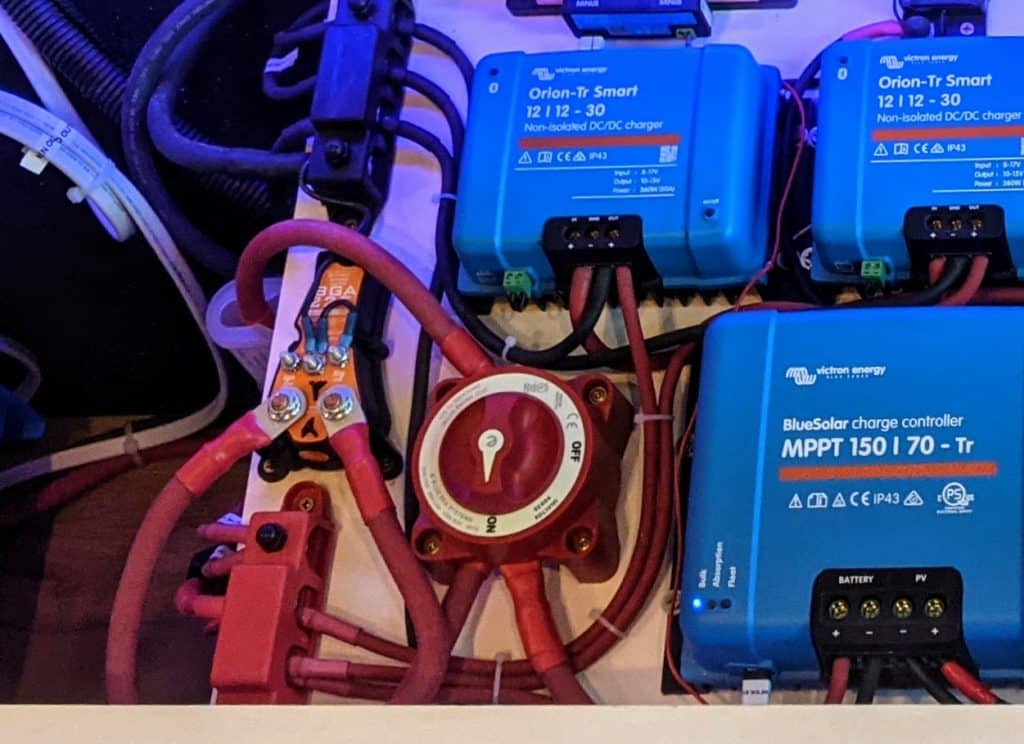
A more complex version of a battery isolator also includes charge control. These are called DC to DC chargers and are frequently connected between two batteries. These DC-DC units allow very specific control of the current flowing between batteries and can help to properly charge a second battery. Many of our customers choose to use a DC-DC charger when connecting to an engine battery system because it will properly charge the lithium batteries without overtaxing the alternator.
These units are designed to be a one-way charge, but in an emergency, they could easily be re-wired to reverse the charge. This can be handy if, for example, the starter battery died. Compared to just jumping the battery, the charger will properly charge it.
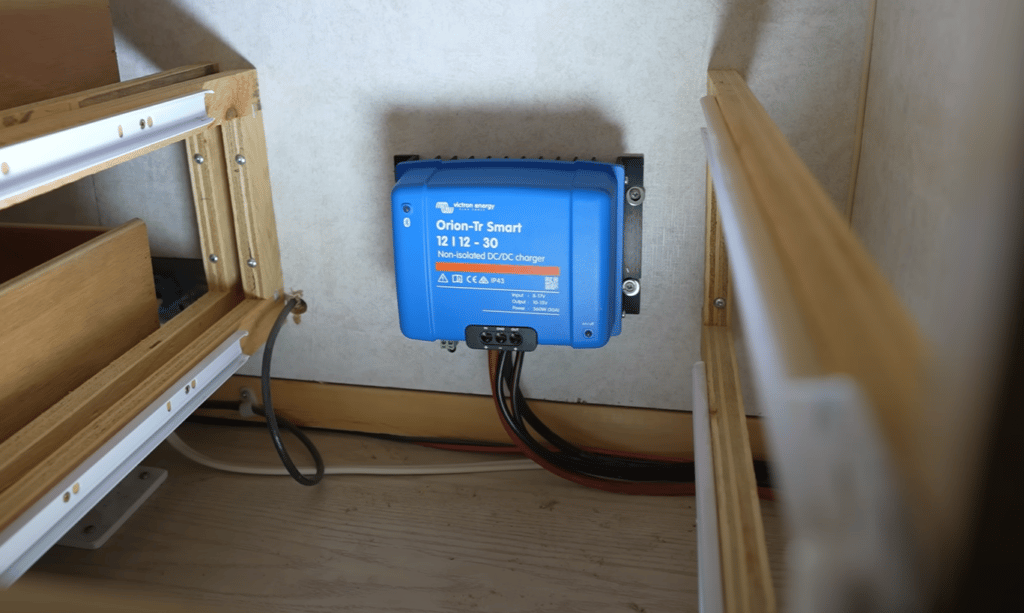
Finally, a diode battery isolator is useful when you have multiple lead-acid batteries and want to prevent them from draining one another. Generally speaking, diodes only allow electrical current to flow in one direction. This allows the batteries to receive a charge off the external power source (whether it’s solar, an alternator, or shore power) but not from one another.
Diode isolators are basically big solid-state blocks with two studs for the batteries and one for the common connection. Power can flow to the common center post but not backward.
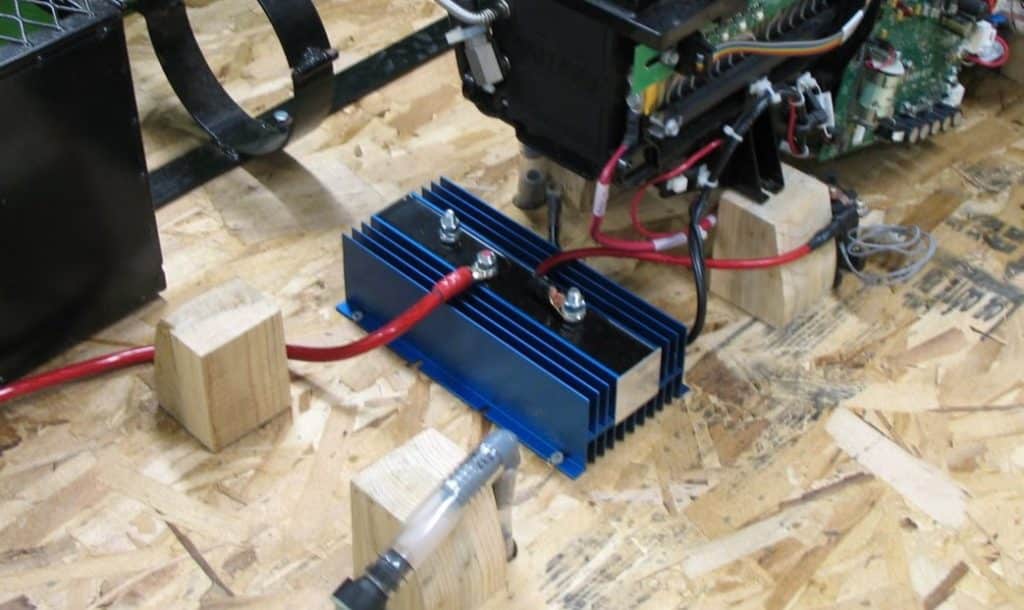
Battery isolators are rated by the amperage they can handle. Thus, you’ll need to get a large enough battery isolator for your electrical loads.
Many times, this is based on the amperage output of your alternator or generator source. While the isolator itself will probably never experience the maximum amperage output, it’s good to have one large enough to handle the strongest possible current of energy.
Ultimately, you’ll need an isolator rated to carry the amount of amperage you expect to draw, regardless of the type of isolator. This will prevent your isolator from frying via too strong of a current.
You don’t necessarily need a battery isolator for every multi-battery system. However, these devices are necessary if your batteries are performing separate tasks or you have a backup battery. For dual battery setups, such as in Overlanding vehicles, RVs, and boats, it is recommended.
Whether you want to protect your house batteries or starter battery from an unnecessary drain, control whether or not your backup battery is connected to the rest of the system, or keep lead-acid batteries from drawing off one another, being able to control the flow of an electrical current is essential.
If you have a very simple one-battery setup, you could probably get away with not having an isolator. However, having one is crucial if you’re in a vehicle, RV, or boat with multiple batteries. The last thing you want is to be stranded out at sea, in the desert, or on a mountain with two dead batteries, and a battery isolator will prevent this.
Do you have any questions about these handy devices? Drop them in the comments below!
We know that building or upgrading an electrical system can be overwhelming, so we’re here to help. Our Reno, Nevada-based sales and customer service team is standing by at (855) 292-2831 to take your questions!
Also, join us on Facebook, Instagram, and YouTube to learn more about how lithium battery systems can power your lifestyle, see how others have built their systems, and gain the confidence to get out there and stay out there.
Shop Best Sellers








Ask a technical specialist now at 855.292.2831
Stay in the Know